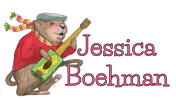|
I'm excessively fond of fairytales, folktales, and fables. I love the dark, troubled and murky waters you land in when reading them. They rarely have a fully happy ending; even if there is love, there is usually death. The stories start with heartbreak, deceit, or loss and don't always resolve into something that sits gently in the corners of your mind. But there is magic, too, made by animals who speak and bestow gifts, fairies and sprites who heal and kill, goblins who steal secrets and babies, and trolls who live under bridges and in the rocky fabric of the mountains of the cold, bleak subarctic lands. The rich stories, passed on by mouth until they were finally transcribed in numerous sources, speak to our shared cultural past.
One of my favorite fairy tales, as you now know, is Hans-My-Hedgehog. The Brothers Grimm version is unrelentingly harsh. The poor hedgehog boy is unwanted, untended, and unloved. He finally flees and becomes a sort of king of the forest. He eventually, though his own cleverness, wins a princess, but is forced to have his skin of quills burned, turning his own human skin underneath charcoal-black, to be freed from his enchantment. Anthony Minghella later retold several fairy stories when he penned them for Jim Henson's undertaking, The Storyteller. In his rendition of Hans, he infused the characters with life, feeling, and love: we get glimpses of the pain of barrenness in a woman, the heartbreaking longing for a child, a wish and a wish answered. A baby boy is born, part boy and part hedgehog, but the mother cherishes her baby. But the father remained unmoved at the sight of his strange child: “For every quill that he had on his body, Hans had an animal for a friend, as many friends as he had quills. He had a special way with these creatures and they loved him. He could talk to them. If his mother was looking for him, she would always go first to the place where the rooster strutted, a proud soldier of hens. Hans tended to this bird, polished his beak, combed his comb, and fed and fattened him, and it wasn’t long before the rooster was the biggest rooster you could imagine, a hugeness, a vast red rooster all plump and flush-feathered. Whenever the sadness came, whenever he caught his reflection in a pool, and saw his strange beast-boy face, Hans would run to these friends and be among them, for they found him neither strange nor odd but magnificent. “Father," he said in his flute voice, ”I want you to do some things for me. I want you to go to the village and have a saddle made for my rooster so I can ride him. And I want some sheep and some cattle and some pigs. They would be happy to come with me where I go. Which is away. Which is to somewhere. Where I can’t hurt no one and no one can hurt me.” The boy grows to be the king of a fine sylvan castle, and does indeed win a princess. In true fairytale fashion, it's not that easy. She betrays him, he flees again. The second winning will be done by her, proving her love for her wedded husband. I've made a self-portrait that weaves in two elements of my favorite fairytale: the rooster and the hedgehog. In the background is text from the story.
0 Comments
Leave a Reply. |
Hans-My-HedgehogHans-My-Hedgehog Illustrations is the name of Jessica Boehman's blog and illustration shop. It is named after her favorite fairy tale about a hedgehog boy who becomes king of the forest. All other pages redirect to: |


 RSS Feed
RSS Feed
